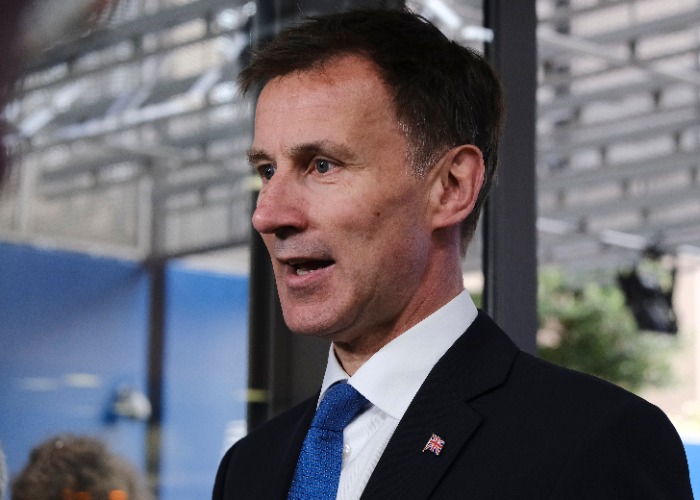Opinion: too much Government help is targeted at the well off

Pension allowances, ISAs, green grants.... the Government is making a mistake spending so much money on financial assistance for those who already have some level of wealth, argues John Fitzsimons.
It’s no secret that it’s a challenging time financially.
Our money has hardly had a chance to recover from the pandemic, and we are now in the midst of a cost of living crisis where so many of the regular demands on our money have rocketed in price.
Given the state of the economy at the moment, it seems somewhat perverse that so much available help is still targeted ‒ or at least only available ‒ to those who are already well off.
Pension allowances
One of the big announcements in the Budget earlier this year was around the pension allowances savers enjoy.
There was both an annual and lifetime allowance, which covered how much could be put away for your retirement before you are whacked with a hefty tax charge.
It was one of the factors being blamed for senior doctors in the NHS opting to retire early in order to avoid the tax bill.
As a result Jeremy Hunt, the Chancellor, hiked the annual allowance from £40,000 to £60,000 while the lifetime allowance ‒ which stood at above £1 million ‒ was dropped entirely.
Great news for those with hefty pensions already, or who are in a position to put away enormous sums in a year, but it does absolutely nothing for the vast majority of savers who are doing well just to put away a few hundred pounds a year.
Boost your later life finances: see how unlocking some of your property wealth could help you make the most of your retirement (affiliate link)
ISA allowances
The ISA is a fantastic savings tool, allowing us to enjoy the fruits of our saving without having to pay a penny over to the taxman.
This has become all the more important in recent months, as interest rates on saving accounts have rocketed, to the point that far more of us face the threat of having to pay tax on our interest unless our cash is kept within an ISA.
There has also been talk of late about hiking the annual allowance, which currently stands at £20,000, in the upcoming Autumn Statement.
But let’s be honest, very few people are in a position to stick away £20,000 a year in savings anywhere.
In fact, most people have much more modest savings goals ‒ indeed a study last year from the Money and Pensions Service suggested that as many as one in six of us have nothing in savings at all.
As a result the number of people that benefit from the current cap, let alone a higher one, would be pretty limited to those who are already pretty well off.
Frankly, for the state of the nation’s financial health, it would make more sense to devote that energy ‒ and funding ‒ towards helping more people get started with saving in the first place.
Grants
There are certain areas where the Government wants us to make positive changes to our lifestyles, particularly when it comes to energy efficiency.
There’s a drive towards making energy-efficient changes to our homes, for example by getting more environmentally-friendly alternatives to boilers installed.
That could be things like air source or ground source heat pumps, or perhaps a biomass boiler.
And there is some financial support available from the authorities, such as the boiler upgrade scheme, where you can get up to £7,500 in grants.
The trouble is this barely makes a dent in the actual purchase price of getting these new systems installed.
Getting a ground source heat pump installed could set you back up to £30,000 for example.
So while the help is welcome, realistically it’s only going to be those who are already financially comfortable who are in a position to even take advantage.
It’s a similar story with electric cars. Certain types of electric vehicle are eligible for grants from the Government, with the idea of making it more accessible to switch to a low-emission vehicle.
These grants are automatically applied as a discount to the purchase price, so again you can only make use of it if you have the funds in place to buy these cars in the first place, which are more expensive in the first place.
|
PROMOTION
|
||
|
Inheritance Tax
This one hasn’t happened yet but has been heavily rumoured following the Conservative Party conference, with talk of the Government potentially scrapping it entirely.
I understand why people get so upset about Inheritance Tax, with the urge to leave something for your loved ones a powerful one.
However, let’s be honest, Inheritance Tax is really a minority concern.
In the most recent figures, only 27,000 estates had to pay the tax at all in the 2020-21 tax year, given the generosity of the various allowances.
Some have described it as effectively a voluntary tax given how relatively easy it is to legitimately reduce if not entirely avoid paying it.
The idea that now is the time for the Government to throw away the billions it receives each year from this levy, in order to give yet more relief to the wealthiest, is completely bonkers.
Comments
Be the first to comment
Do you want to comment on this article? You need to be signed in for this feature
